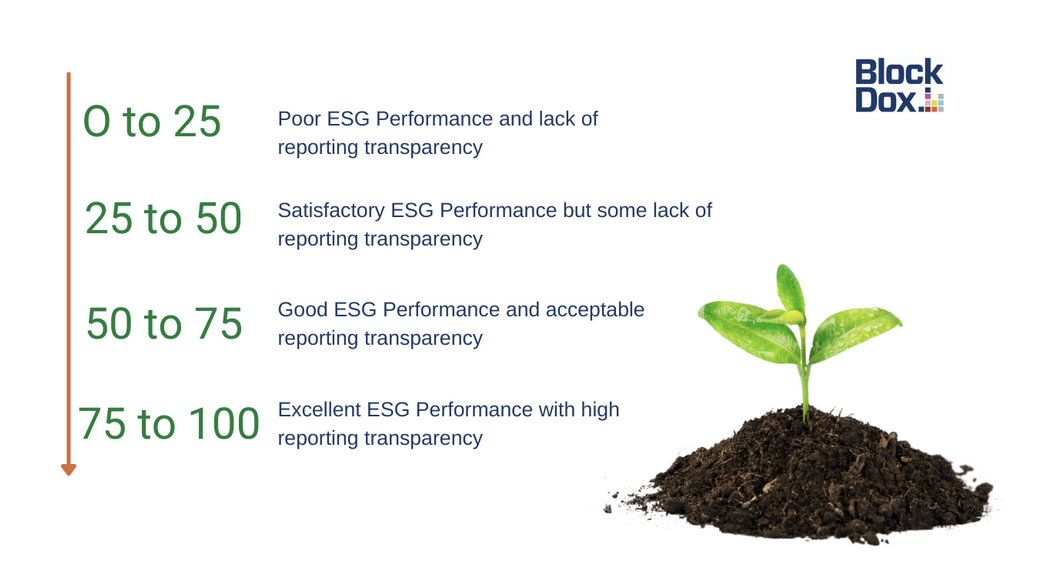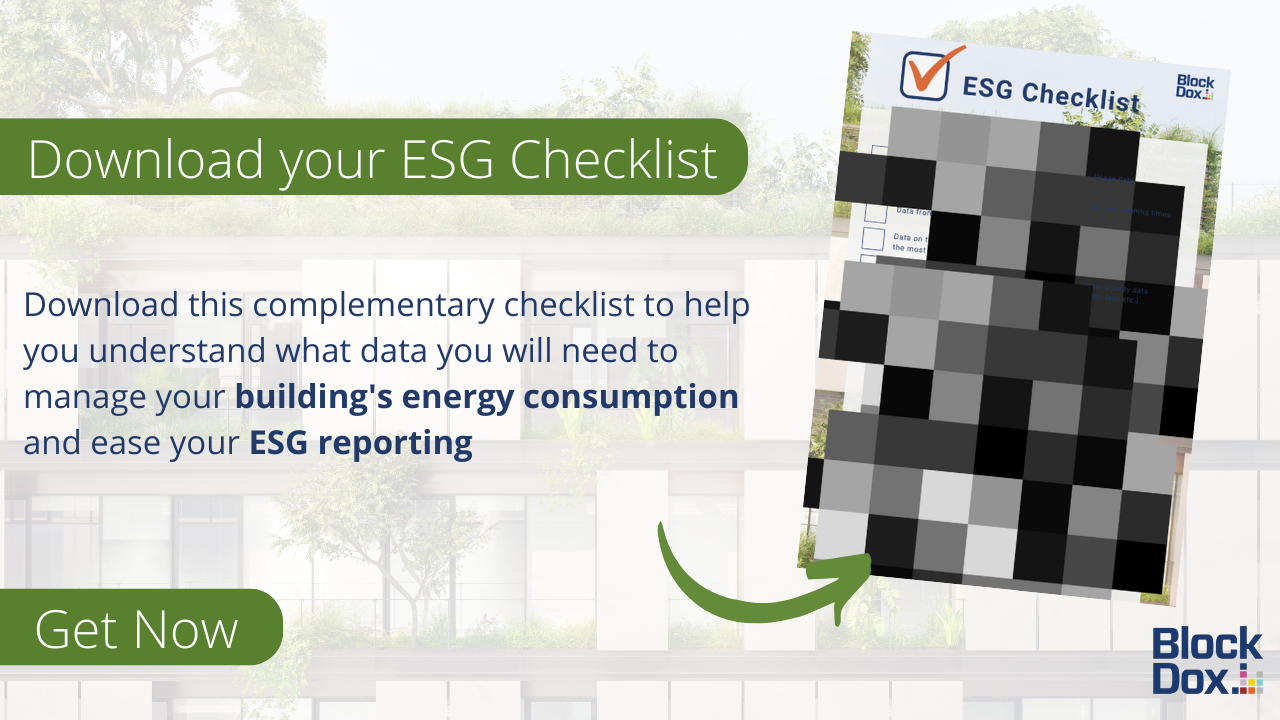What is a positive rating ?
A positive ESG rating or score is essential to demonstrate your buildings’ impact on the environment and people that inhabit them. A company is rated on each of the main components of ESG: Environmental, Social and Governance risks.
Scores usually range from 0-100 with a rating between 0-50 considered poor and a rating above 70 seen as excellent. Some methodologies use letters (AAA, BBB, CCC..) instead of numbers for scoring a company, with AAA being a positive rating and CCC a mediocre one. It’s important that you aim for a positive score as negative scores will impact relationships with investors, shareholders and tenants.

Why is data essential to achieve a positive rating?
\ ESG reporting needs data to ensure that your efforts are measured and optimised. Without it, reporting on your ESG score would be meaningless. It is therefore essential that you adopt a data platform that collects the data that you need and that provides you with insights that you’d be unable to see with the naked eye. This would give you an amount of visibility and granularity never seen before.
Having access to your building’s data will not only enable you to understand what’s happening in it but it’ll also help you to identify gaps and unhealthy patterns. With BlockDox for instance, you’d be able to know which areas or appliances are wasting a lot of energy. This allows you to take action in real-time.
Adopting a sustainability framework of your choosing will help you to keep track of your ESG KPIs. Most frameworks have been standardised to ease reporting, such as the GRI, Global Reporting Initiative which is by far, widely used for ESG reporting. Other options include:
- The Carbon Disclosure Project (CDP)
- Global Real Estate Sustainability Benchmark
- International Integrated Reporting Framework (IIRF)
- The Sustainability Accounting Standards Board (SASB)
Adopting one of these guidelines will not only evidence your commitment, but it’ll also demonstrate you’re in it for the long haul. We recommend that you focus on the data that matters most for you to achieve a positive ESG rating.
What metrics will you need to measure?
1. How energy efficient are your buildings?
This an important metric indicating how much energy you might be potentially wasting without even being aware of it. This metric can be measured in kWh/m2 or /square foot. You can use a benchmark of your choosing such as GRI, Global Reporting Initiative which is by far, widely used for ESG reporting or other frameworks (see above).
2. What are your carbon emissions?
It goes without saying that any business leaves carbon footprints regardless of their activity. Communicating this with full transparency is now part of your carbon reporting. There are currently 3 categories a company can use to classify their emissions’ type: Scope 1,2 and 3.

3. What is your Indoor Air Quality like?
A recent study found that we all spend on average 90% of our lives indoors. This means that the quality of the air we breathe can drastically affect our overall health. Substances such as PM2.5 or CO2 when in high levels can lead to cancers. Additionally, viruses propagate faster in spaces where the air quality is subpar, causing pulmonary infections, flus and also aggravating asthma symptoms. Companies have a duty of care to their employees and at BlockDox we believe it starts with clean air for all.
4. What are your occupancy rates?
Knowing your occupancy rates allows you to see if your spaces are used efficiently or not and to take action if certain rooms become overcrowded. This metric helps you understand where you might be wasting money and if reinvesting it in something more profitable is a good idea or not.
How BlockDox can help
\ Making sense of your overall building performance requires a feedback loop so continuous improvements can be made. At BlockDox, we collect data from different sources to provide our clients with insights that would otherwise be invisible to the naked eye. We invite you to disucss your ESG strategy with us, and we’ll help you identify which data you’ll need in order to achieve a positive ESG rating based on your required framework. We can also generate regular reports to ease your compliance obligations.
Being experts at controlling and monitoring air quality, we also help you ensure your buildings are safe for occupants to be in. Air quality is considered an important aspect of the ‘Social’ of ESG and should therefore be included in your ESG plan.
No matter what sustainability goals you have in mind, BlockDox are here to accompany you in your ESG journey.













